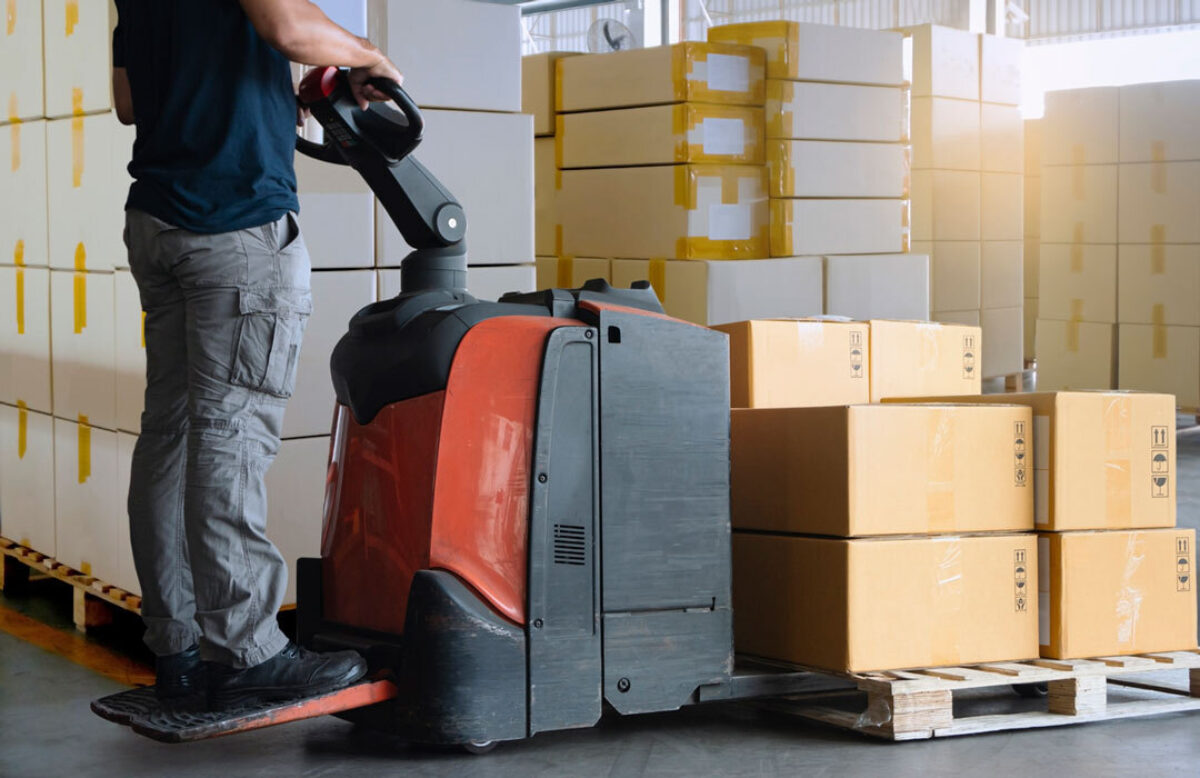Lithium batteries play an important role in warehouse functioning. They offer an abundance of benefits that can modernize operations and make sites more efficient. As online shopping in the U.S. has more than tripled over the last decade, producers want to deliver goods to consumers as soon as possible. In order to do this, they have begun implementing many regional hubs into their supply chain operations as opposed to one centralized warehouse. Warehouses also need to maximize space and storage so as to navigate throughout the site in the most efficient manner. However, manufacturers are also facing increased pressure to make their supply chains more sustainable. One way to reduce the carbon footprint of these warehouses is to switch out lead acid batteries for reliable and long-lasting lithium batteries. Below, we have outlined the various ways that lithium batteries can reduce labor costs and benefit warehouse operations, particularly material handling and floor care. Lithium batteries are easily compatible with efficient, automated guided vehicles commonly found in warehouses, they are safer, they last longer, and they reduce the space needed for storage.
- Lithium batteries are compatible with automated guided vehicles (AGVs) & can reduce labor costs
- Minimize costs by providing the safest option for AGVs and users
- Lithium batteries are the more cost-efficient option
- Lithium batteries take up less space and can be stored/used in colder temperatures
Lithium Batteries are Compatible with Automated Guided Vehicles (AGVs)
As companies now often focus their operations in regional hubs, rather than centralized warehouses, it can be a challenge to fully staff these sites. A lot of handling is required for a warehouse to be fully operational, so companies have begun reducing labor costs by increasingly relying on AGVs. Lithium batteries are well suited to be used in AGVs because of their long battery life, quick charging capabilities, and a minimal amount of maintenance required.
By investing in long-lasting lithium batteries to power AGVs, labor costs can be drastically reduced. Given that much of the handling done in a warehouse can be done by AGVs, utilizing these machines for mundane tasks eliminates the need to spend time and resources, training workers. To make the most out of the switch to AGVs, warehouse operators should outfit them with the most durable, reliable lithium batteries to prevent frequent replacement costs and minimize charge and recharge times.
As operations have expanded more rapidly than the staff at many warehouses across the country, most warehouses are also experiencing employee turnover and are understaffed as a result. To overcome the difficulties of not having enough workers, warehouses can rely on AGVs to do a lot of the same work at a lower cost. A one-time investment in a lithium battery with a 10-year warranty and quick charge times can maximize warehouse capabilities and minimize inefficiencies caused by maintenance, frequent recharging, or underemployment of the site.
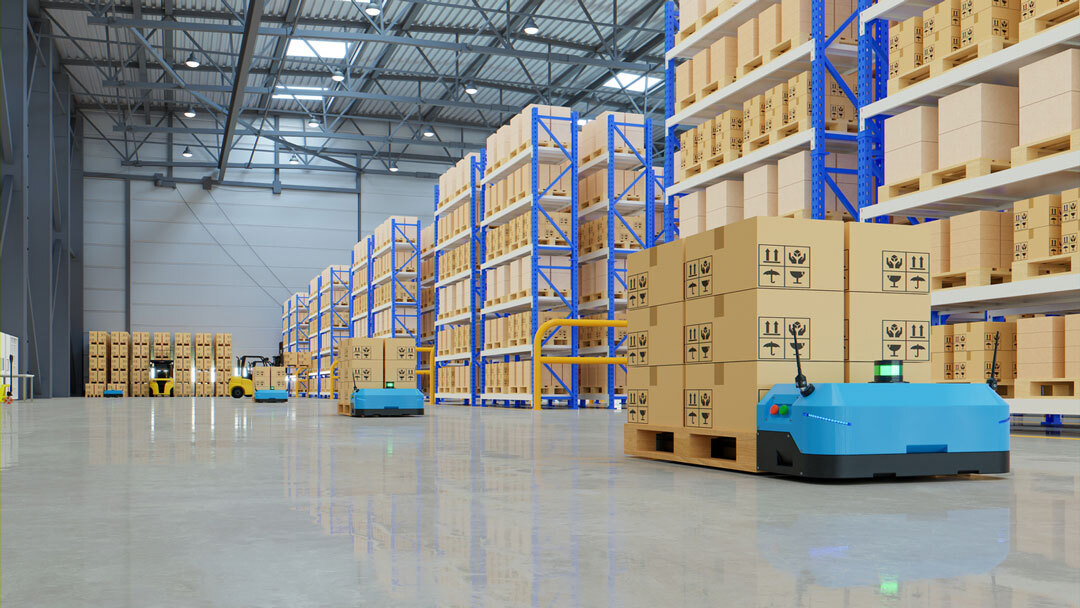
Lithium Iron Phosphate Batteries Minimize Costs
Employees are physically safer when handling lithium batteries compared to lead acid batteries. Less maintenance is needed, which minimizes exposure to hazardous situations for workers. When handling these batteries, employees are much more protected, experience less work-related injuries, and file less potentially costly worker's compensation claims. When flooded lead acid (FLA) batteries are charging, they release a noxious gas and must be kept in a battery box that is vented to the outside. There is also liquid in FLA batteries, so they must be stored upright. These conditions make it more likely that users will encounter fumes, spills, and in the most severe cases, fire, the repairs for which can add up.
Energy storage systems like RELiON’s lithium-ion phosphate (LFP) batteries offer the safest lithium chemistry on the market. LFP batteries are not cobalt-based and therefore have superior chemistry due to strong covalent bonding. As a result, LFP batteries are not prone to thermal runaway or fire and do not require additional cooling systems, as most lithium cobalt-based batteries do. On top of having more stable chemistry, lithium batteries like RELiON’s also come with a well-designed battery management system (BMS) that protects against over-charging, over-discharging, unregulated temperature, and short circuit conditions. Reduced chances of worker injuries provide peace of mind to workers and minimize labor costs for operators in the long run.
Lithium Batteries are the More Cost-efficient Option
Lithium batteries offer up to 10 times the battery life of lead acid batteries, which results in significantly reduced replacement costs over time. In addition to that, their performance does not diminish with use. The power lithium batteries produce when fully charged is the same as when 20 percent charged. Lead acid batteries, in comparison, do experience diminishing power with use. Lead acid batteries also can only be discharged down to about 50 percent, meaning users don’t get the full use out of the battery’s nameplate, or rated, capacity. Lithium batteries can be discharged far beyond that, allowing warehouses to maximize the battery’s full capacity for every single charge/discharge cycle. Many warehouses and distribution centers operate 24 hours a day and rely on batteries constantly, so battery replacements end up being a significant cost. Larger capacity and shorter charge times can significantly affect how high that cost is.
Lithium batteries require much less maintenance and replacement costs because of their durability. RELiON, as a leading lithium battery manufacturer, provides a ten-year warranty on all their Legacy line products, as opposed to most lead acid battery brands, which typically last between three and five years. Users of lithium batteries will be able to utilize greater productivity with sustained power during use and quick charges for lower cost overall, compared to lead acid batteries.
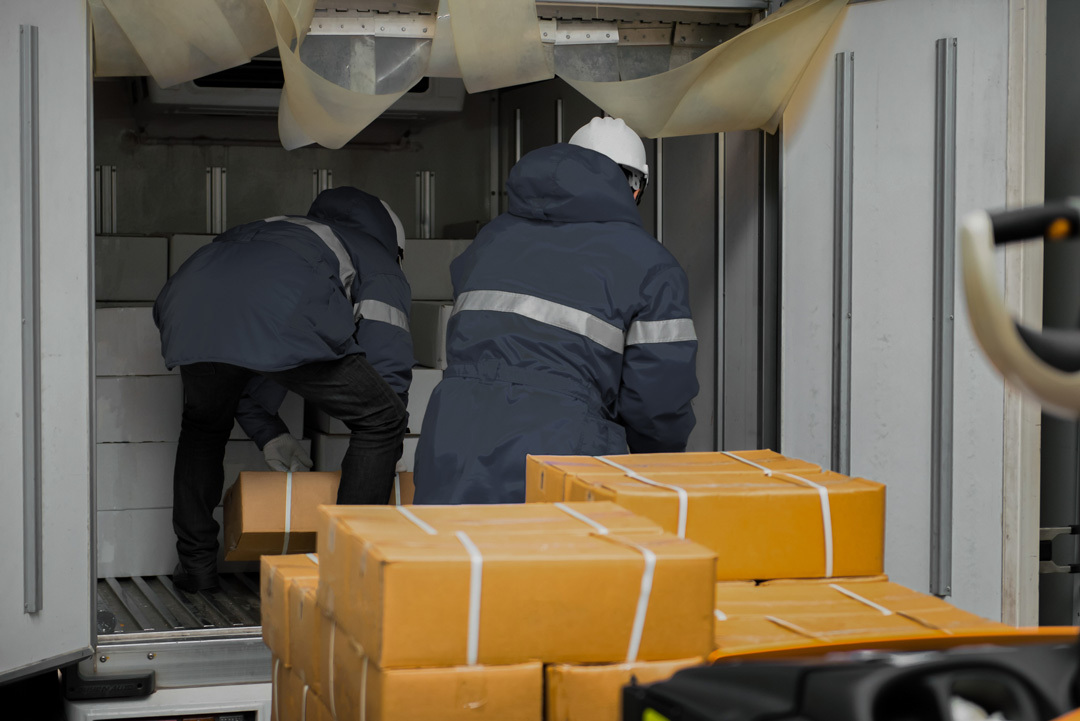
Lithium Batteries Take Up Less Space and Can Be Stored and Used in Colder Temperatures
Battery storage is a major part of any warehouse. Lead acid batteries run out of power quickly, especially after multiple years of use. Replacement batteries must be readily available to workers during their shifts so they can immediately install them. As a result, these replacement batteries often take up an entire room of storage in a warehouse. Online shopping is only growing, and major retailers in the space, like Amazon, are continuing to expand their operations. Storage for products is becoming invaluable and warehouses are looking for ways to maximize their space. The extended lifespan of lithium batteries means fewer replacement batteries must be kept in the warehouse, so less storage space is needed. Additionally, lithium batteries are much more energy-dense and so take up less floor space per kilowatt-hour compared to lead acid batteries. This benefits warehouses because that space can instead be used for product storage, increasing warehouse productivity and driving profits. Maximizing designated storage for products rather than batteries is the most effective use of space in warehouses.
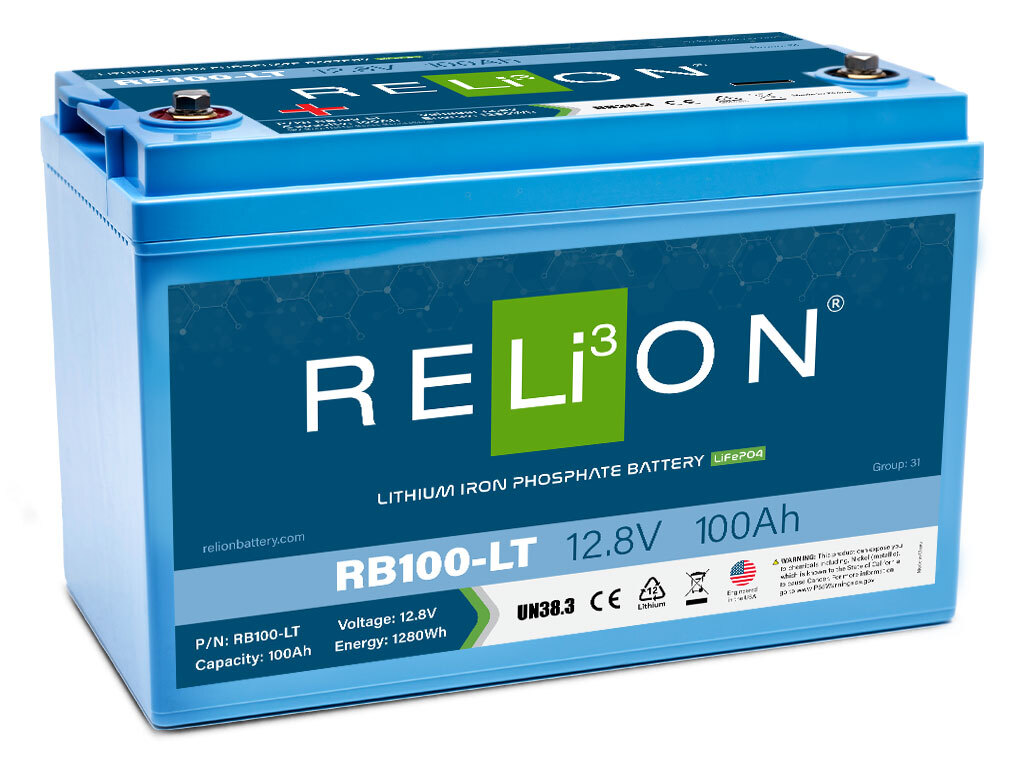
Additionally, RELiON’s Low-Temperature line (LT) of batteries is able to operate and be stored in colder climates. In the LT series batteries, they have onboard heaters to prevent performance issues in cooler temperatures and, as a result, can perform with 2.5 times the efficiency of lead acid batteries in cold climates. This allows warehouses to store them where they can’t store products, opening up more space for products. These batteries can also be used in a wider variety of warehouse locations across the country while still providing efficient and durable power.
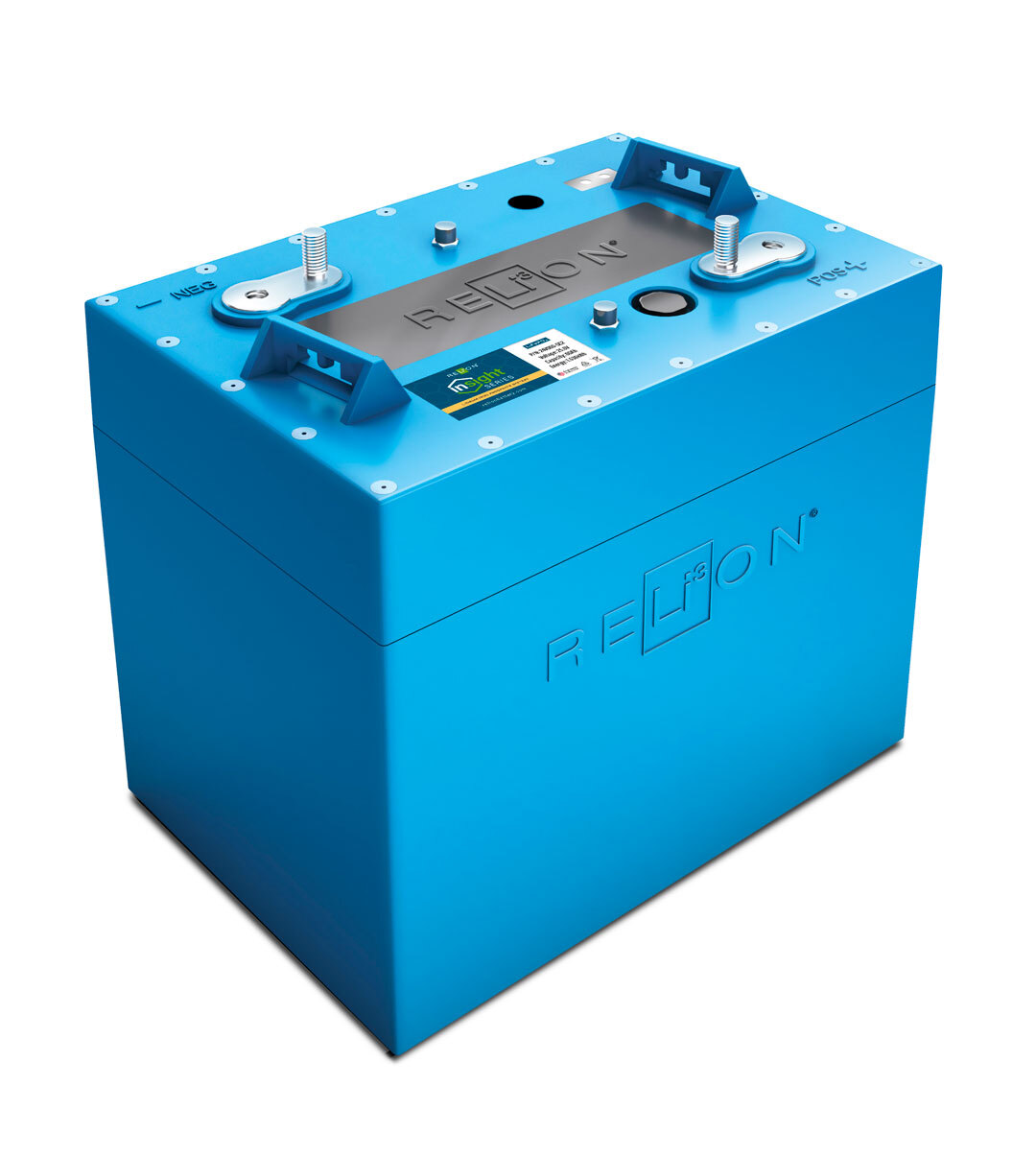
Lithium batteries allow operators to increase their uptime and decrease the total cost of ownership for customers. RELiON has demonstrated that lithium batteries are a great decision for warehouse operations, most recently by establishing a partnership with the Hyster-Yale Group. Hyster-Yale Group, Inc. designs, manufactures, sells, and services lift trucks, many of which are used in warehouse sites. They have partnered with RELiON to install lithium batteries in their trucks because of their longer life, faster charging, and minimal maintenance required. Additionally, the plug-and-play installation process of RELiON batteries makes it easier for end-users.
RELiON’s InSight 24V UL-certified lithium batteries are designed to meet the needs of electrically motorized hand trucks, scissor lifts, and aerial work platforms, making them uniquely qualified for warehouse operations. If you want to learn more about how you can integrate lithium batteries into your warehouse’s operations, make sure to contact a member of our team today.
